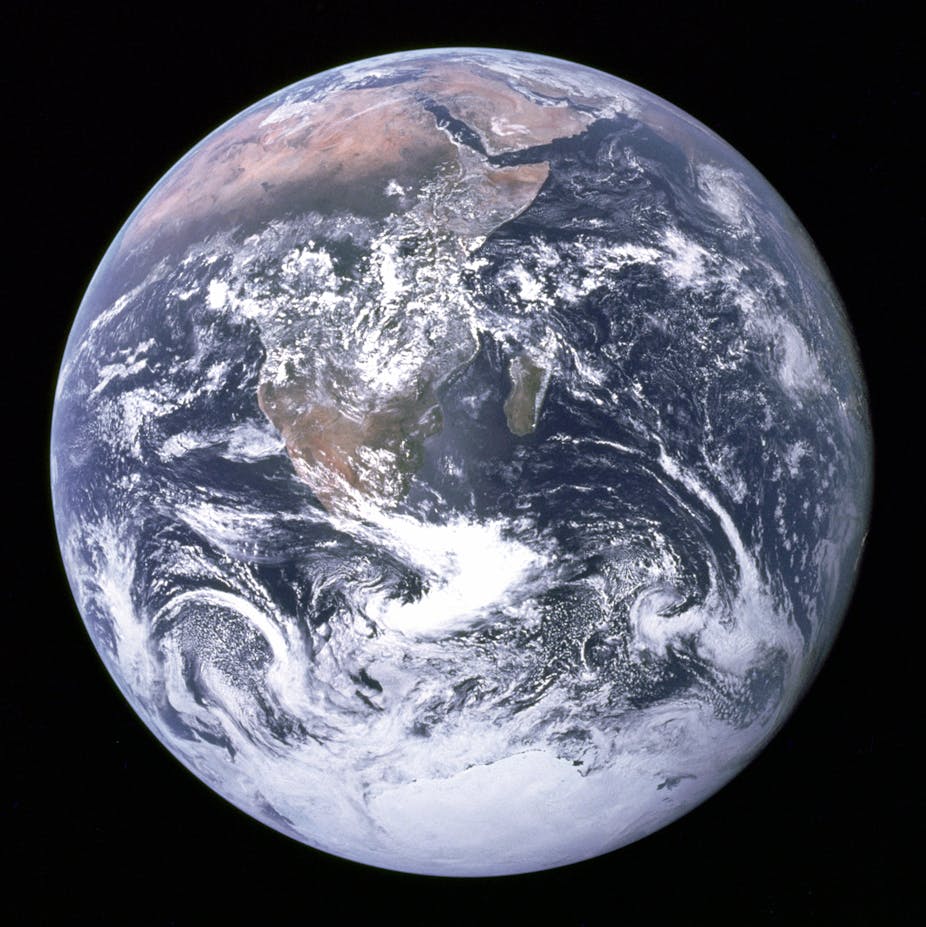It seems like science fiction that 44 years ago Apollo 11 astronauts Armstrong and Aldrin traveled nearly a quarter of a million miles to walk on the surface of the Moon. When the crew of Apollo 17 returned to Earth in December 1972, they were not only the last humans to visit the moon, but also the last to venture further than a couple of hundred miles from the Earth.
That the moon landings were achieved less than 10 years after Kennedy’s now famous speech in Rice, Texas, 1962 makes it more amazing still. His impassioned argument for why a Moon landing and safe return should be the challenge to be met was: “We choose to go to the moon in this decade and do the other things, not because they are easy, but because they are hard”.
The more romantic notions of space exploration aside, Apollo was a statement of US scientific, engineering, industrial and political exceptionalism, driven by Cold War rivalry with the USSR. Technological elements of it were based on intercontinental nuclear missile programmes. The fear of nuclear war and losing the space race helped build support for Apollo.
Despite some of the more apocalyptic predictions of runaway climate change, one challenge of reducing carbon emissions is that while we have been monitoring atmospheric CO2 for decades, the slow, steady increase and diffuse effects has meant there isn’t a single identifiable threat against which we can organise. As with boiling a frog, when temperatures rise sufficiently gradually, by the time it’s too hot, it’s too late to do something about it.
Climate change is not the only detrimental impact humans are having on the Earth. What may be one of the great mass extinction events is taking place, and over half of the world’s great tropical rain forests have been destroyed, leaving perhaps 20% by the middle of this century at current rates of deforestation. Within a few decades we will need at least 50% more energy and food and 30% more water, which means working the Earth harder for what it can give us, while urgently reducing the impact we have on its planetary boundaries. This context makes the challenge greater, and we should use this magnitude and scale as a rallying call.
So if in 1962 the US chose to go to the Moon, 51 years later we can choose to reduce impacts on the Earth. Asked why we should to divert effort, energy and money to this challenge, the response should be that we are choosing the Earth. We choose the Earth in this decade and the next, not because it is easy, but because it is hard. Because – as Kennedy said then – that goal will serve to organise and measure the best of our energies and skills, because that challenge is one that we are willing to accept, one we are unwilling to postpone.
The task ahead
Reducing carbon emissions will require fundamental transformations in energy production that will challenge us scientifically and technologically. We have already made good progress – the cost of solar-powered electricity is about one hundredth what it was in the 1970s, wind power and other renewable energy capacity is rapidly growing, and new generations of nuclear fission reactors, even fusion reactors, hold the potential for safer, clean power.
But generation is only one aspect. We will need to build smartgrids in which electric vehicles not only consume electricity but are also batteries that can power homes. This requires massive investment in, and sometimes complete reconstruction of transmission networks. It will require a new generation of engineers to build new infrastructure.
More challenging are the changes to governance and political institutions. This means messy and imperfect politics, and that means voting. The wishes of young people are very often under-represented because they often won’t engage with the political process. Democracy is not just about voting, it’s also about knowing who represents you and you telling them what you find important. Write to them. Complain. Don’t like any of the candidates? Spoil your paper. Start your own party. Meet other people who share your interests and values. Individually you can be ignored. Collectively you can agitate and initiate real change. Rather than top down, imposed solutions that don’t work get people involved in processes and issues that matter to them. Connect them with others and have them feel invested in these projects and collectively build consensus and power from the bottom up.
Perhaps the greatest challenge of all is finding the set of values that will let us live sustainably on the Earth. Hyper-consumerism and the demand for growth is simply not compatible with the finite resources of our planet, and the use of Gross Domestic Product as the only measure that counts needs to be addressed, so that natural resources and human lives are defined by more than monetary values.
One of Apollo’s greatest achievements is the image of Earth known as the Blue Marble, taken by the crew of Apollo 17 as they left the Earth. Mission commander Eugene Cernan said later that “We went to explore the moon and in fact discovered the Earth”.
The Earth had been photographed from space before, but this was the first complete high quality colour picture. Beautiful, without borders, it hangs dynamic and fragile in the vast blackness of space. Its atmosphere, a thin film that clings to its surface.
The Cold War propelled us to the Moon 50 years ago. Our response to the prospects of a hotter climate can be to choose to live sustainably on our home planet. In doing so our legacy to future generations can be that we decided to choose the Earth that they would wish to live on.

